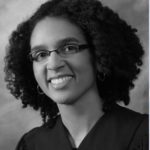- On a global but non-substantive level, the court: (1) reordered the rules so that they roughly track the sequence of stages of an appeal; (2) revised the format and language to be more user-friendly, and to reflect the possibility that parties will be self-represented on appeal; (3) added and updated citations to relevant provisions of the California Rules of Court; (4) added URLs for the web pages where referenced court forms may be found; and (5) deleted several rules (identified below) that have become obsolete.
- Motions to Augment the Record (former rule 7, now rule 4)
- Settlement conferences (former rule 3, now rule 9)
- Stipulated reversal (former rule 4, now rule 10)
- Electronic filing (former rule 16, now rule 12)
- Oral argument (NEW rule 13)
- Focus letters and tentative opinions (NEW rule 15)
- Division One has indeed started issuing tentatives in some cases!
- New authority prior to oral argument (NEW rule 16)
- Electronic devices in the courtroom (NEW rule 17)
- Abbreviated opinions (NEW rule 19)
- Circuit-riding sessions (former rule 14, now rule 20)
Also of interest: The Federal Circuit (and other federal circuits) often decide appeals in one-word orders (i.e., "affirmed"), which some lawyers and litigants find "frustrating." Putting the lie to "Everybody talks about the weather, but nobody does anything about it," another attack has been launched against this practice. Law360 has Justices Again Asked To Abolish Fed. Circ.'s 1-Line Orders: "The petition focuses on the issue of whether the Federal Circuit's frequent practice of issuing "cryptic" one-line affirmances under Rule 36, which SPIP said violates its due process rights and goes against the practices of nine other circuit courts."







